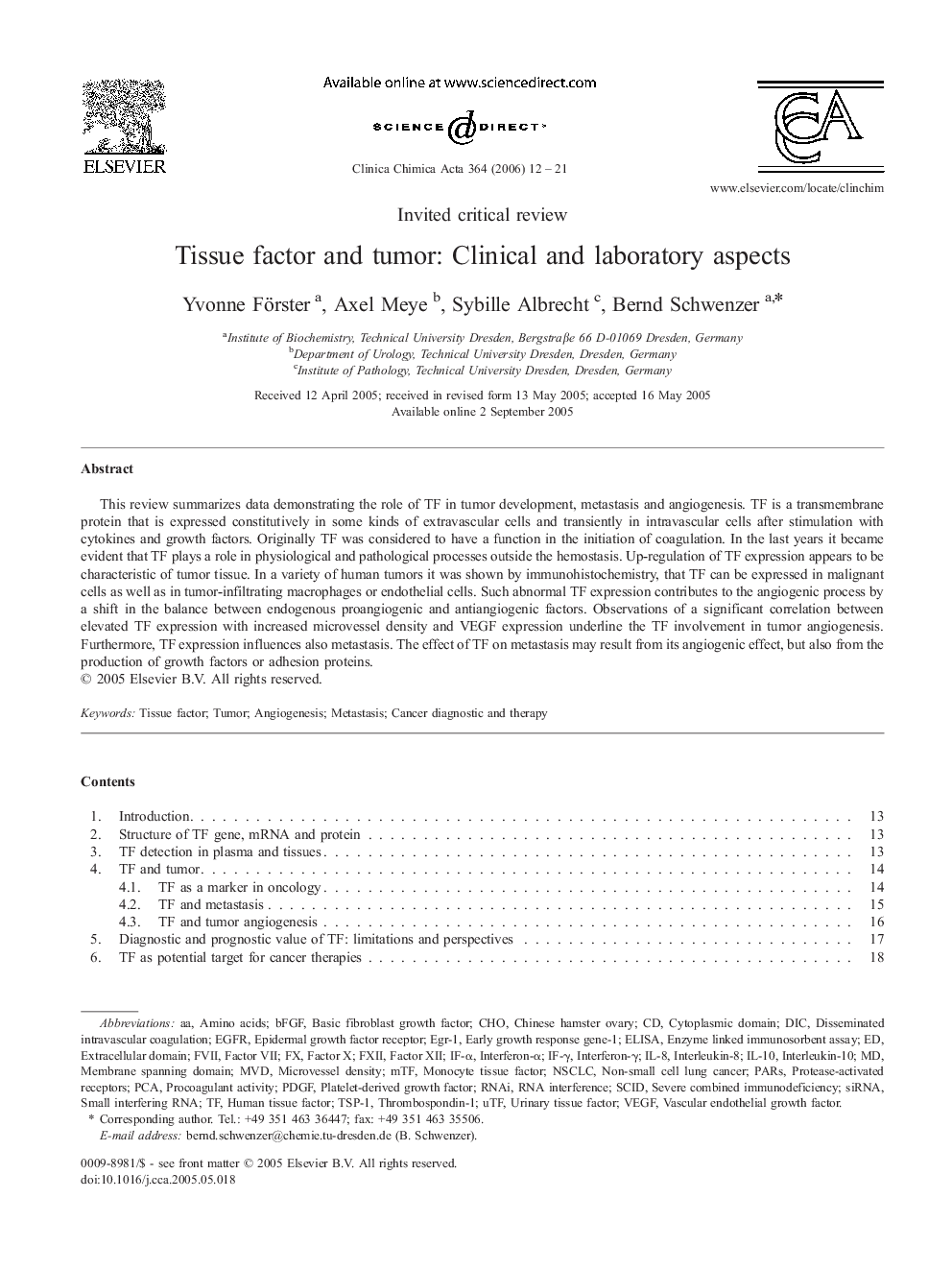| Article ID | Journal | Published Year | Pages | File Type |
|---|---|---|---|---|
| 1968318 | Clinica Chimica Acta | 2006 | 10 Pages |
This review summarizes data demonstrating the role of TF in tumor development, metastasis and angiogenesis. TF is a transmembrane protein that is expressed constitutively in some kinds of extravascular cells and transiently in intravascular cells after stimulation with cytokines and growth factors. Originally TF was considered to have a function in the initiation of coagulation. In the last years it became evident that TF plays a role in physiological and pathological processes outside the hemostasis. Up-regulation of TF expression appears to be characteristic of tumor tissue. In a variety of human tumors it was shown by immunohistochemistry, that TF can be expressed in malignant cells as well as in tumor-infiltrating macrophages or endothelial cells. Such abnormal TF expression contributes to the angiogenic process by a shift in the balance between endogenous proangiogenic and antiangiogenic factors. Observations of a significant correlation between elevated TF expression with increased microvessel density and VEGF expression underline the TF involvement in tumor angiogenesis. Furthermore, TF expression influences also metastasis. The effect of TF on metastasis may result from its angiogenic effect, but also from the production of growth factors or adhesion proteins.
